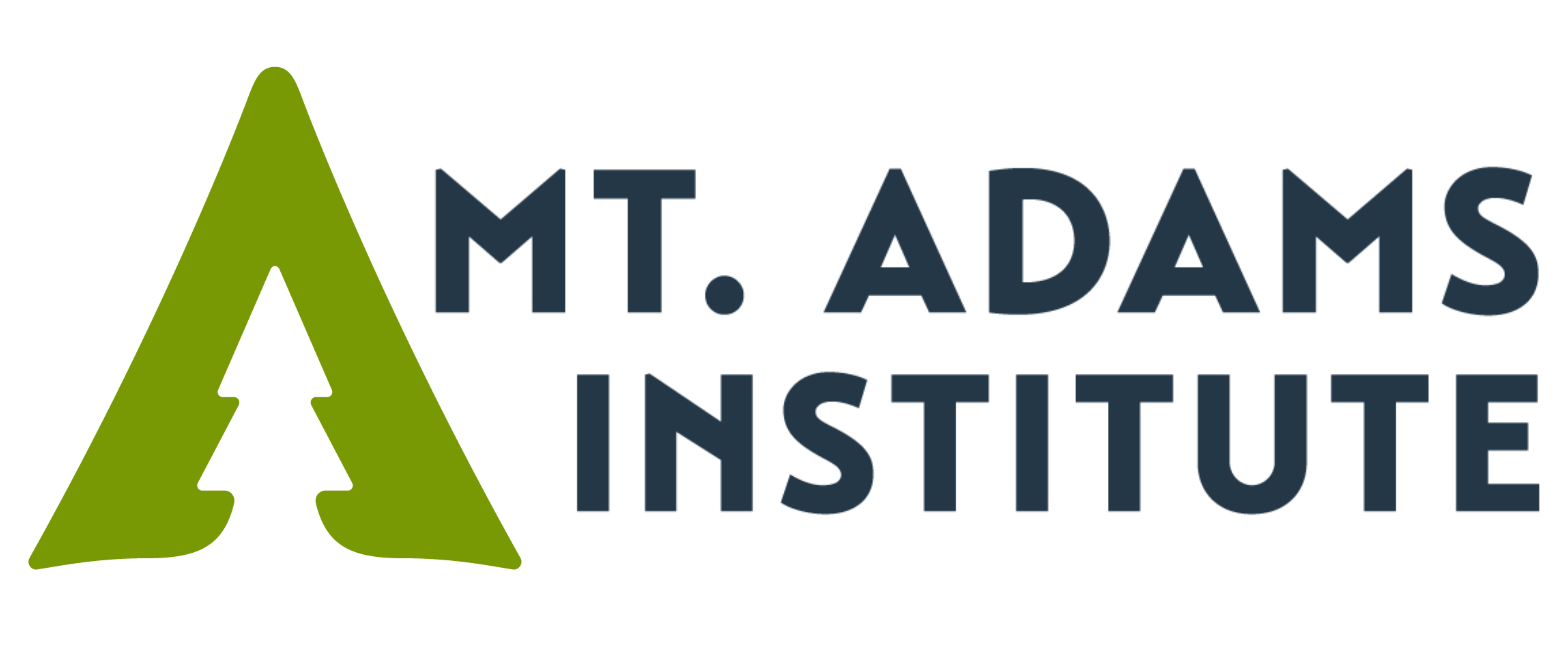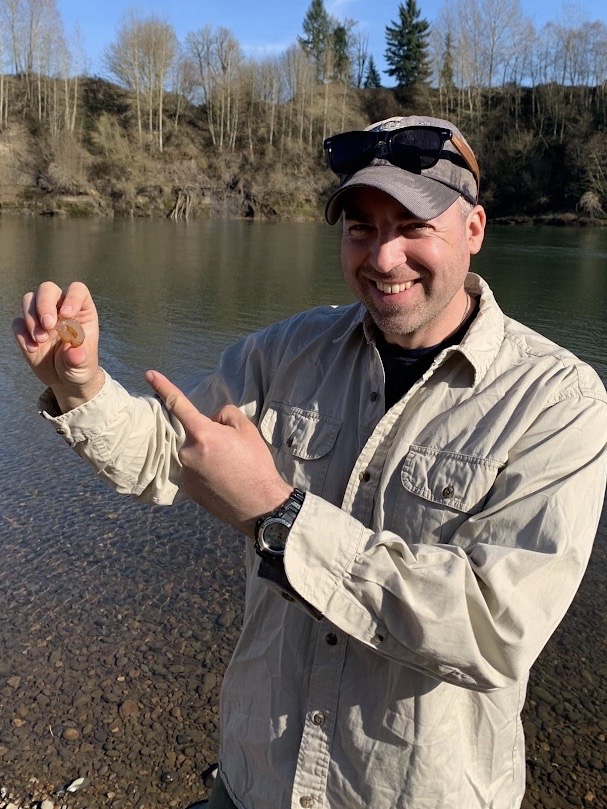Splash… The sound of my paddle in the water as I coast along otherwise silently. I’m in a canoe in the middle of the main stem of the Willamette River. I’m no stranger to this stream as a Portland resident, but this is a completely different experience than I’m used to in the city. Normally I see the river from afar, perhaps on a bridge in my car as I slowly make way through city traffic, or maybe on a run in my North Portland neighborhood over to the University of Portland campus where I can look out at the Portland Harbor stretch of river with all the variety of industry there. Today, however, I’m on the water in the front of a canoe down near the tiny town of Fairfield, Oregon not far north of Salem, where the river seems a more wild thing, and I feel small and vulnerable to its power. My guide for today is Travis Williams, executive director of the Portland based non-profit, Willamette Riverkeeper, an organization I’ve been paired with for an eleven-month internship through the Mt. Adams Institute’s VetsWork AmeriCorps program. The water runs swifter here and there is wildlife to observe. In just a couple hours of paddling, we see several great blue herons, a great horned owl, a few bald eagles, and several duck and grebe species as well as an abundance of songbirds. Travis points out an established great blue heron rookery; it takes me a moment, but I begin to see the nests and then I can see the birds themselves perched high up in the black cottonwood trees. As we paddle down the river, I know I’m surrounded by agricultural lands, but down in the water, it feels like I’m in a wilderness.
We’re coming from a Willamette Riverkeeper property where we spent time surveying a new trail and hand pulling Scotch broom, one of many bothersome and unfortunately ubiquitous damaging invasive species across the Willamette basin. Looking at a dense growth of it gives one a feeling of helplessness, but after only a couple hours of work with a weed wrench, Travis and I make a sizeable dent in the meadow, and a satisfying pile of the pulled plants we’re able to leave to desiccate, having pulled the plant in late winter before they seed.
Later, Travis schools me on hunting for agates, volcanic rocks created when trapped gases escaped the cooling lava and the empty spaces eventually filled in with silica. We scour the gravel bed by the river where we had docked our canoe looking for the best ones, and I find a winner.
My trip today is a microcosm of my new journey with Riverkeeper. Change may seem daunting at first, but after putting my head down and getting my hands dirty, I can see the progress and reap the rewards. As we paddle down the river, I begin to feel more comfortable in my new environment on this great river. I don’t feel quite so small and have the confidence to paddle with ease as we navigate downriver towards our take-out point. We pull in to the dock and load up the truck to end our day and I’m reminded of the reasons I embarked on this journey. The Mt. Adams Institute’s mission statement is to strengthen the connection between people and the natural world through education, service learning, career development and research. This trip embodies that mission statement and this new job is shaping up to meet that mission and to give me a foothold on a new career in natural resource management that I’ve been dreaming about for many years. The future looks bright…
Written by:


